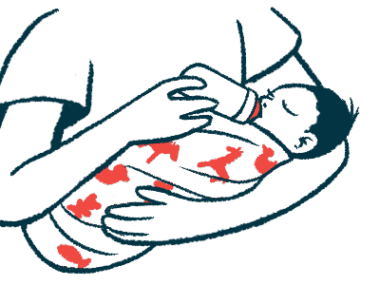What do my PNH symptoms feel like?
How I now describe my fatigue, headache, and shortness of breath
Written by |

In 2019, I was diagnosed with my rare blood disorder, paroxysmal nocturnal hemoglobinuria (PNH). I was in New York City to see a specialist and remember looking out the 23rd-floor window, worrying what this status would mean for my quality of life. I wondered if the little ants walking on the streets of the city below faced as much trouble as I did.
I hoped the results were incorrect and that I didn’t have PNH, but after reading about the symptoms, I connected a lot of dots. I checked a lot of those symptom boxes, even ones that then didn’t seem to be a concern. Family asked me then what all of them felt like. I’m better at answering that question now, since I stopped ignoring my symptoms and instead listened to what they’re telling me.
Fatigue
There’s a big difference between being tired and having fatigue. When I’m tired, it could be because I didn’t sleep enough, need my morning cup of coffee, or had a busy day running around doing errands. Tiredness is yawning, eyes watering, and the desire to take a nap.
Fatigue, on the other hand, is out of my control, and no nap or coffee will shake it. It’s feeling that each of my legs weighs 100 pounds and that a nap is not just a desire, but a necessity. Trying to fight it is like trying to push a stalled car: If you have enough momentum, you can get it moving, but it’d be 100% easier if the car was already moving and you were able to hit the gas. It’s one of my most prevalent and frustrating symptoms.
Fatigue can linger for different lengths of time, too. Sometimes it only lasts an hour, while other times it may last an entire day.
I’ve learned that it’s better for my mental health if I don’t fight the fatigue or try to rush it away. When I feel it starting, I change my plans for the day and make arrangements to rest and do little else.
Headache
My most painful symptom, however, is a headache. Mine come at random times, with no patterns relating to treatment schedule, water intake, hormones, food, or otherwise. I can also feel the difference between a regular headache and a PNH headache. A regular one I can fight with Tylenol and a huge glass of water, but a PNH headache — let’s just say it isn’t as easy to fight.
When I have one of those, I use peppermint oil or lidocaine patches on my forehead for relatively immediate relief. I also try a little caffeine by having a cup of coffee or a soda. Heating and/or cooling pads on my head help, too. But the best treatment for a PNH headache is to rest and let it run its course.
Shortness of breath
The most annoying symptom for me is shortness of breath. It feels like an incomplete yawn that I start, but can’t catch the deep breath that follows. I can still breathe, but I need to take a break from whatever I’m doing, close my eyes, and focus on calming my heart rate. This symptom mostly happens randomly, regardless of if I’m sitting or moving. But going up stairs is almost a guaranteed trigger.
One time while trying to catch my breath, I was asked if I was having trouble because I was out of shape. That was so disappointing. It’s important for people to know that PNH-caused shortness of breath has nothing to do with stamina or cardio. Even when I’m on a workout schedule and building my stamina, I still get shortness of breath at random times.
Even though PNH causes many other symptoms, these three have changed the most since my diagnosis. Before then, when I felt them develop over years, I thought they had different causes and ignored the impact they had on my life. Now they’ve become much easier to handle since I’ve learned what causes them and how to combat and control them.
Note: PNH News is strictly a news and information website about the disease. It does not provide medical advice, diagnosis, or treatment. This content is not intended to be a substitute for professional medical advice, diagnosis, or treatment. Always seek the advice of your physician or other qualified health provider with any questions you may have regarding a medical condition. Never disregard professional medical advice or delay in seeking it because of something you have read on this website. The opinions expressed in this column are not those of PNH News or its parent company, Bionews, and are intended to spark discussion about issues pertaining to paroxysmal nocturnal hemoglobinuria.






